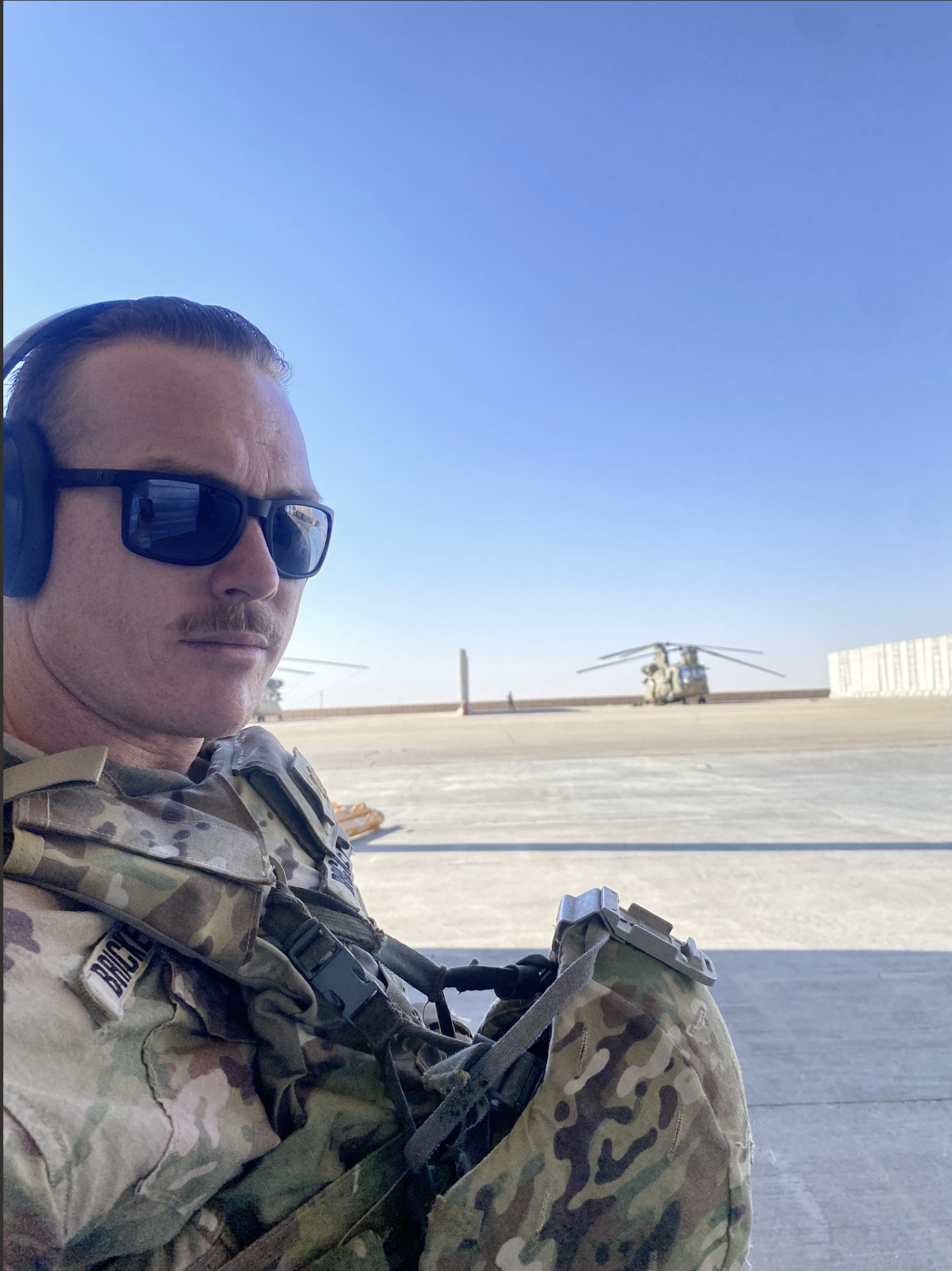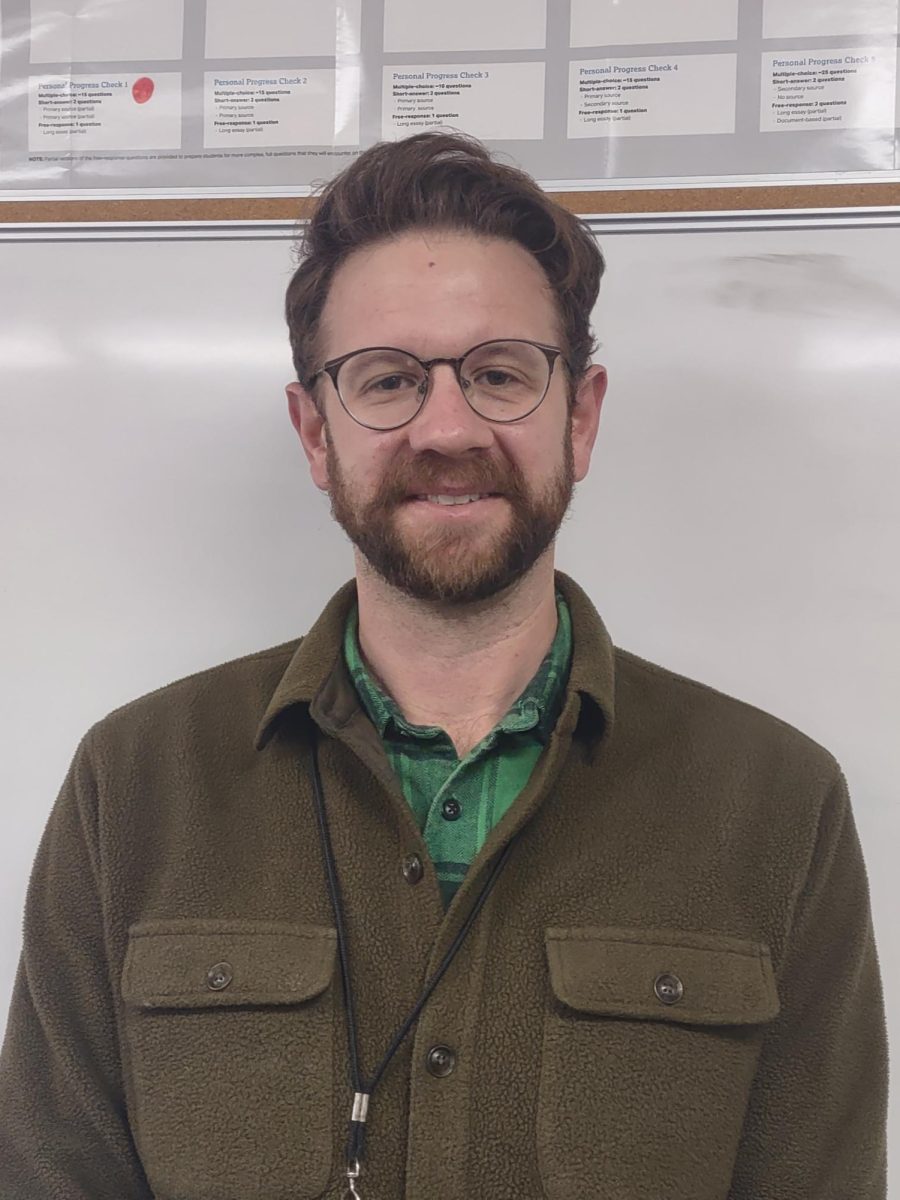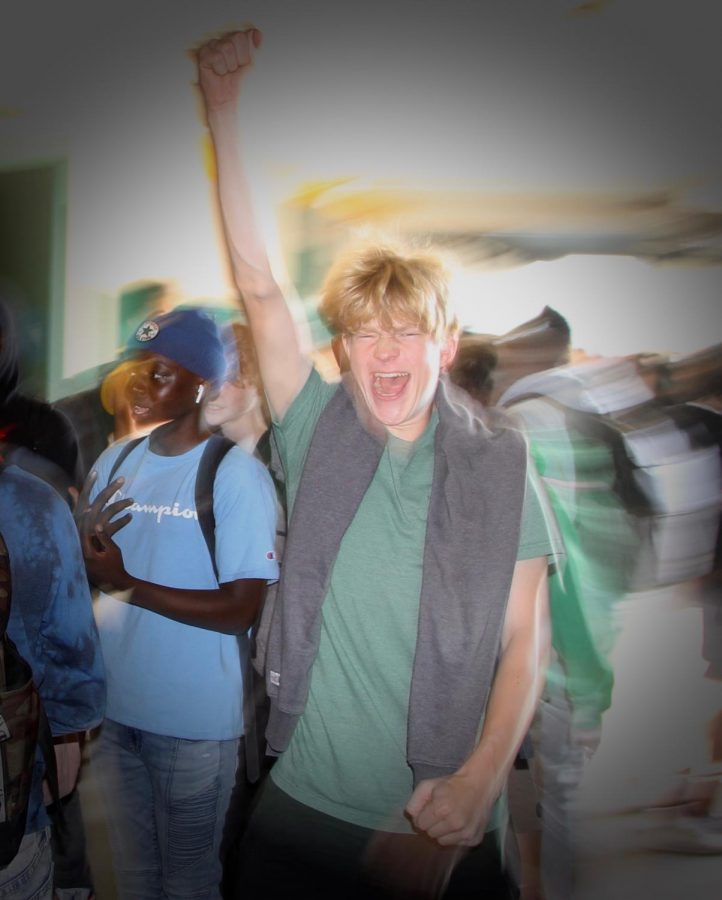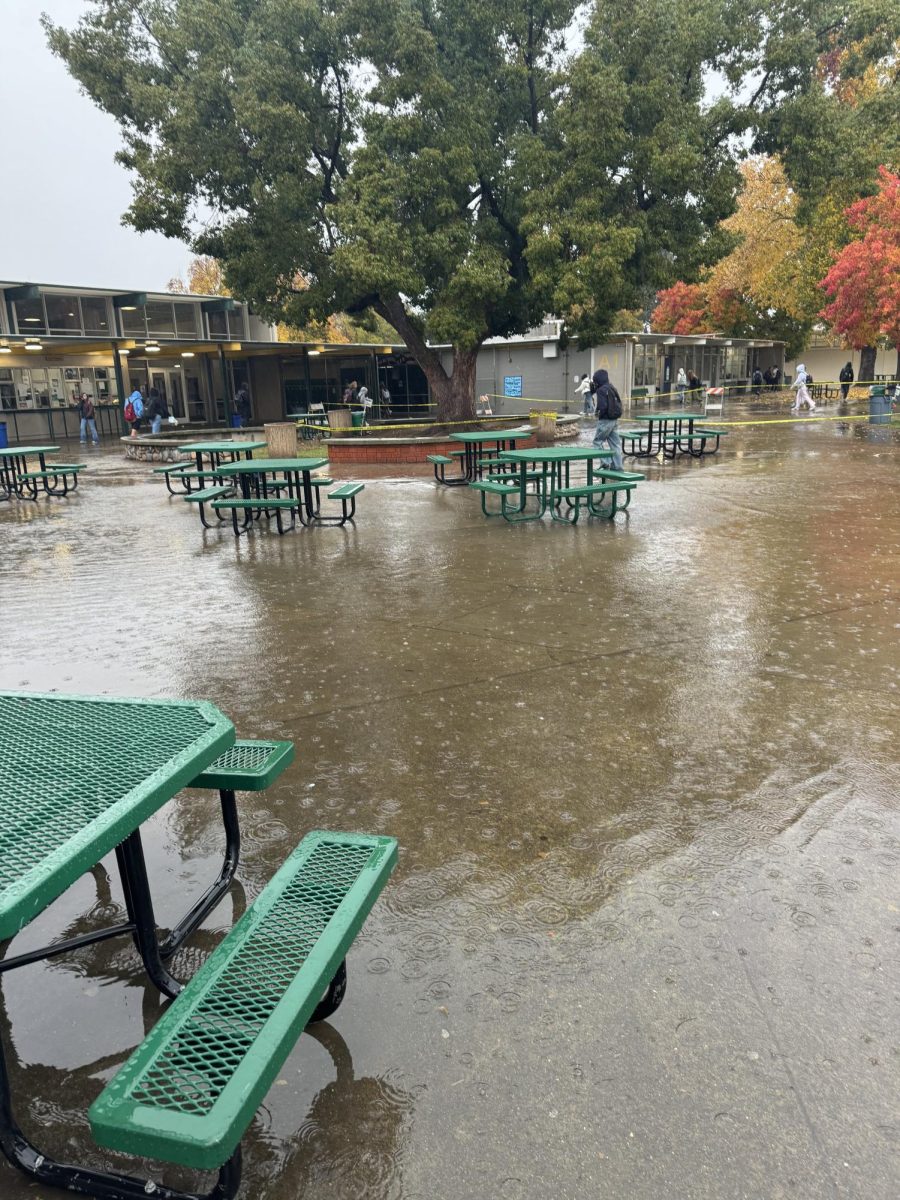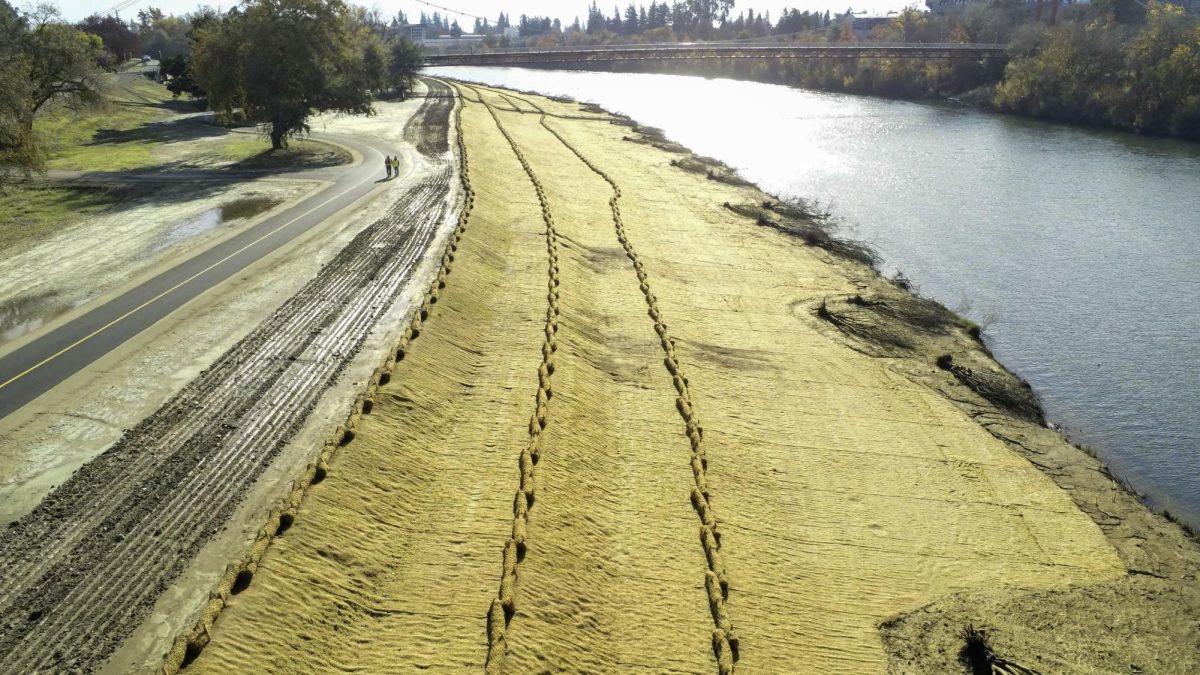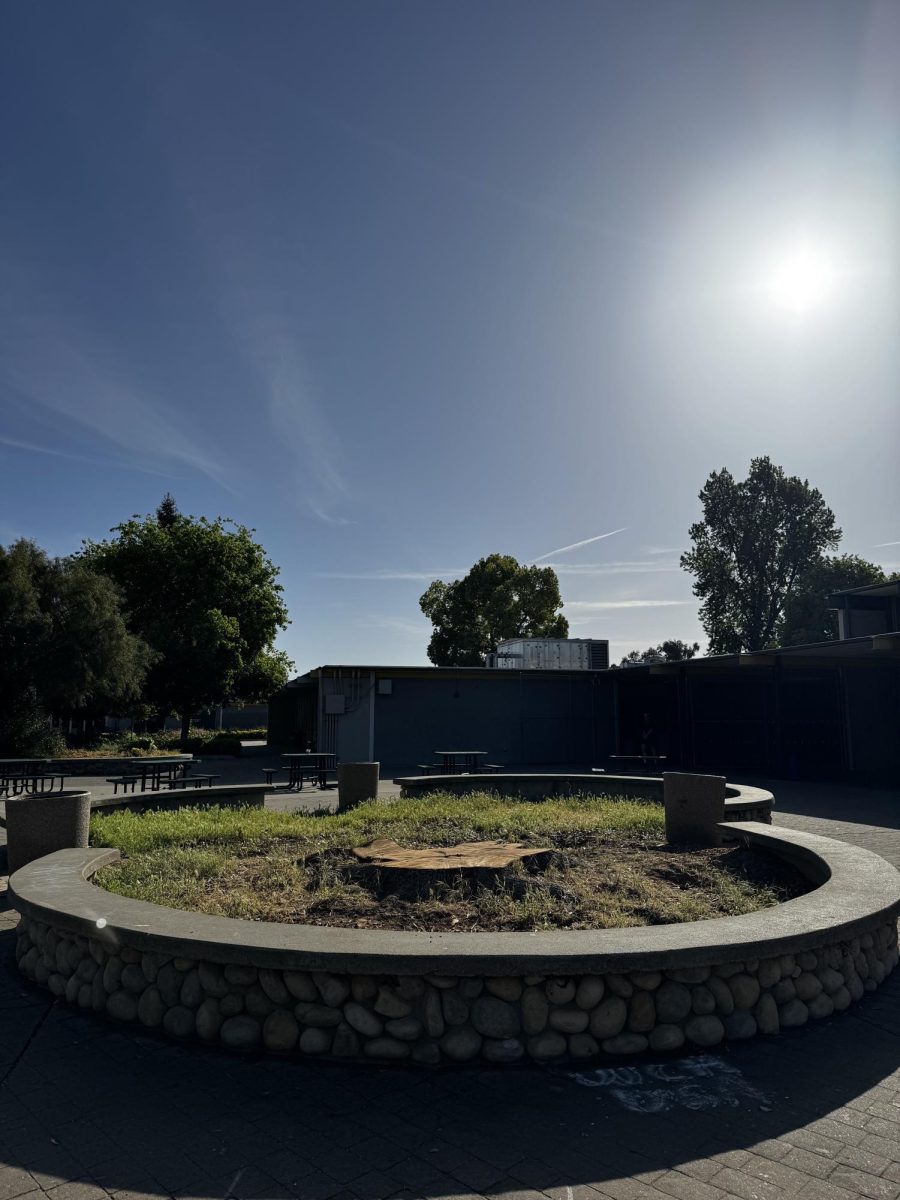While deployed with the Army Reserves in the Middle East, Rio Americano history and geography teacher Brian Brickey witnessed the lives of people affected by decades of conflict and faced potential threats from bomb-carrying drones. But the hardest part of his job might have been the separation from his family and friends.
Brickey returned to Rio on Jan. 9 at the beginning of the new semester after spending most of the past year as a public information officer in the Army Reserves. He was separated from his wife and daughters for the first time in about eight years.
“This was the first time that I’d ever been away from my 5-year-old daughter for more than a week at a time,” Brickey said. “So it’s difficult in the sense that you miss them, but you kinda just change your mindset and focus and put that to the side because your main focus while you’re out there is making sure that you are coming back to them. If you’re too worried or taking too many pauses, being sad or missing them, that’s when you can be in the most danger.”
When the Mirada reported on Brickey’s deployment last year, he expressed his concerns about how much he would be able to contact his family during his deployment. However, in an interview after his return he said there was Wifi in most places and many soldiers could use StarLink. As a result, Brickey was always able to message his family with the occasional Facetime.
During his 10-month deployment, Brickey was stationed in Jordan for three-and-a-half months and in Syria and Iraq for about 80 days each. He served as a Public Affairs Director this time whereas he was an Anti-Tank Guided Missile Platoon Leader during his previous deployment eight years ago.
“Any reports or news coming out from the U.S. military in the Middle East for the past year, I was in charge of,” Brickey said.
Working with different organizations, including the Iraqi counterterrorism service, his job entailed managing Facebook, Telegram and Instagram accounts “and all of their pages, the same way that I was operating all the U.S. Army pages,” Brickey said.
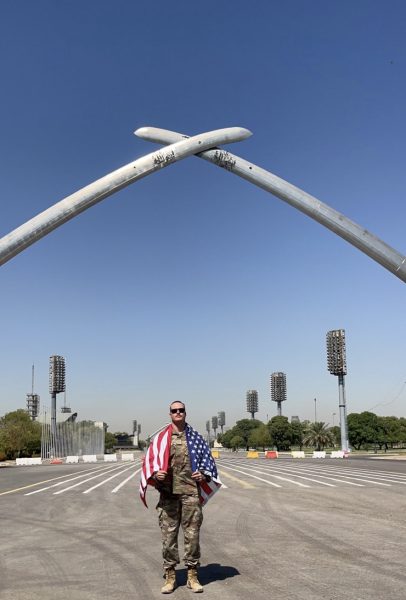 While he was no longer in a direct combat role, his unit still faced threats. Drones with bombs attached, which can be launched from virtually anywhere, were the main threat, mostly in disputes between supporters of the Syrian Democratic Forces and its opponents.
While he was no longer in a direct combat role, his unit still faced threats. Drones with bombs attached, which can be launched from virtually anywhere, were the main threat, mostly in disputes between supporters of the Syrian Democratic Forces and its opponents.
In Iraq, Brickey was responsible for reporting on Hamas sympathizers’ attempts to fire drones from Iraqi mountains into Israel. During the Israel-Hamas War, the U.S., a key Israel ally, helped shoot down incoming rockets.
While deployed, Brickey worked with a number of groups that he said Americans usually aren’t aware of. One such group was the YPJ (Women’s Protection Units) which is an all-female militia currently part of the Syrian Democratic Forces.
The organization’s existence, Brickey said, is impressive given the struggle for women’s rights in Syria and other countries in the Middle East.
“The women’s protection unit is in Northeast Syria and is the only all-female military unit in the entire Middle East, at least within the Levant,” Brickey said, referring to the area around the eastern Mediterranean. “They are renowned for their ability to seek and kill ISIS (Islamic State of Iraq and Syria). They often were the only ones fighting in places like Aleppo or Rocca and they were the driving force behind eliminating ISIS in Syria. You meet these women who are literally fighting for their lives because if it weren’t for them, they would have been sold into slavery with ISIS.”
Since Brickey’s deployment, the Syrian Democratic Forces have taken control of the country, toppling the brutal regime of Bashar al-Assad.
In Syria and Iraq, each person Brickey met had their own unique story, he said, often one mired with constant conflict in their own backyards. There isn’t a single family in the areas he served in that hasn’t experienced some kind of trauma from terrorism, Brickey said.
Brickey recalled one general who had known four decades of war.
“(The general) worked with a general in Iraq who fought against the Russians in the ’80s, fought against the Americans in the early 2000s, and now has swapped sides back to supporting Americans against terrorism,” Brickey said. “So he has spent his nearly 40-year military career fighting, always fighting a war, not abroad, but in his home in Iraq, and his family is grown up, he has grandkids, and has had a son who died in the in the conflict against ISIS, and his kids have had their house bombed.”
The toll of war on the people of Iraq and Syria is immeasurable, Brickey said, yet their stories of resilience, bravery and survival were a source of inspiration.
“We often forget who is over there and that there are entire communities beyond just the United States and how they interact in the local customs,” he said. “Learning what others are going through, it can shed a different light for your perspective.”

